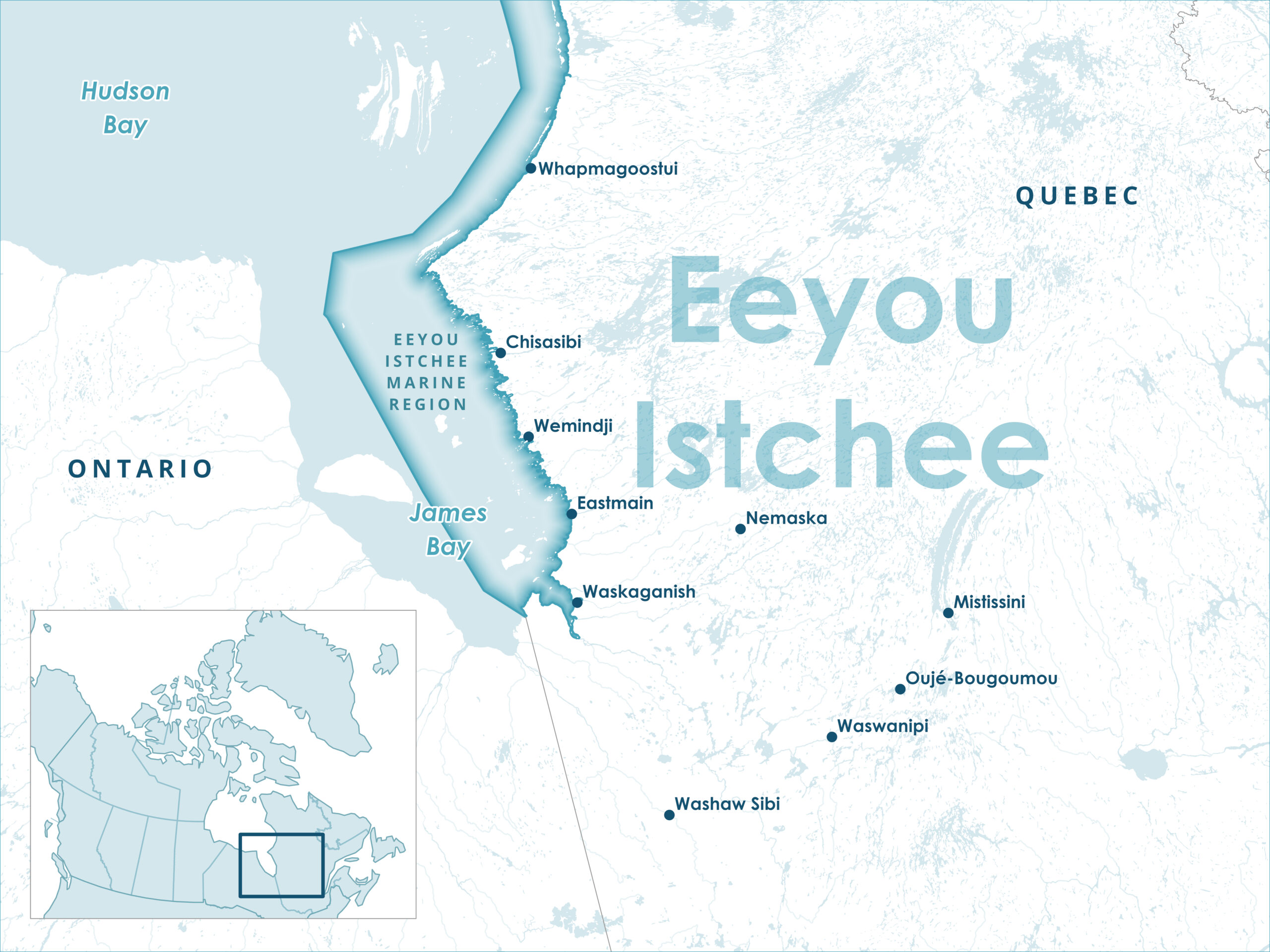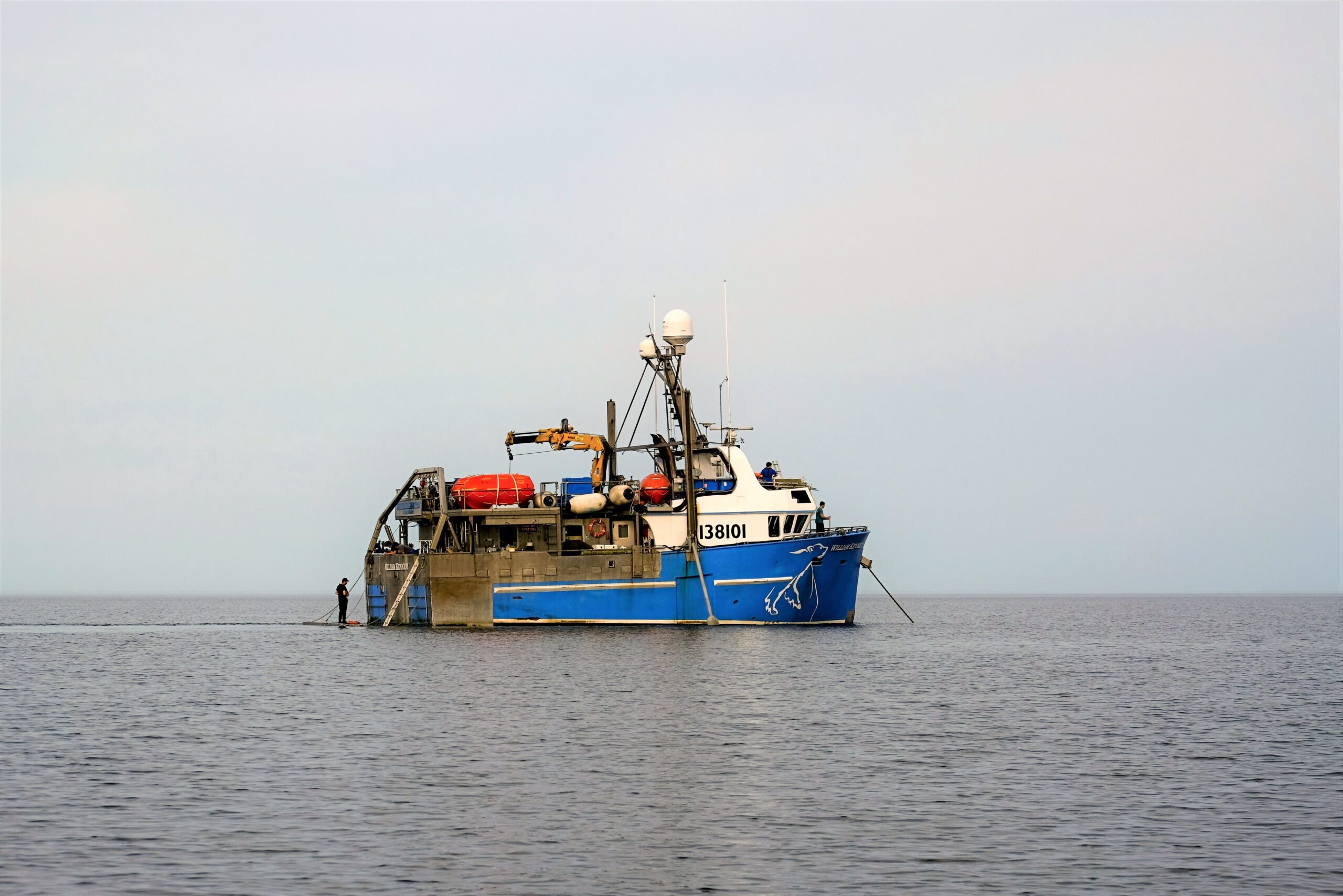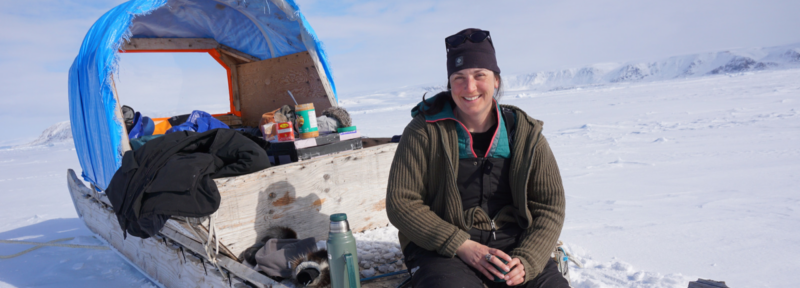Study Suggests Indigenous Harvesting Promotes Better Health
A Cree man fishing on the Rupert River, near the community of Waskaganish.
Credit: Adobe Stock
In many remote Indigenous communities, hunting and harvesting on the land and sea puts food on the table and reduces reliance on over-priced groceries—but researchers are discovering the benefits of harvesting go well beyond the economic.
Those who hunt, fish, trap and participate in other forms of harvesting learn a wide variety of practical skills and develop a close relationship with the environment, including an awareness of the importance of wildlife management. Community-based harvesting also has cultural benefits, drawing on traditional knowledge, values and language. Sharing the catch reinforces social networks and strengthens family ties, increasing community resiliency.
Harvesting also improves health. Recently, researchers studied a long-term income support program for Eeyouch (Cree) families who took part in traditional harvesting in the eastern James Bay region of northern Quebec and found these active harvesters were likely to be healthier than others in the area. This program is unique and worth studying. While most harvester support projects are funded with small, piecemeal grants, this program offers long-term support—a modest annual income for those who choose hunting, trapping and fishing activities as a way of life.
Cree communities in Eeyou Istchee, which means "the people's land." The Eeyou Istchee traditional territory encompasses more than 400,000 square kilometres.
Credit: Oceans North
Families are encouraged to pursue harvesting and related cultural activities by giving them an income guarantee, benefits and other incentives. Participants must spend between 120 and 240 days a year “on the land” engaged in traditional activities such as hunting wildlife and fishing and receive modest income payments in return. The program, administered by the Grand Council of the Crees (Eeyou Istchee) – Cree Nation Government, has operated since 1976 and is funded by the Quebec government. It was established to help mitigate the impacts of hydroelectric megaprojects on the Cree’s traditional homelands.
The 2021 peer-reviewed study by researchers at the University of Toronto, called “Health Measures of Eeyouch (Cree) Who are Eligible to Participate in the On-The-Land Income Security Program in Eeyou Itschee,” analyzed a number of variables, including activity level, weight, diet, inflammatory markers and blood mercury levels to evaluate the health of 545 people from five communities in the region. Of this total, 82 men and women were eligible for the harvesting income support program. The study used data from an earlier health survey, as well as self-reported information such as activity levels, to compare the two groups.
“The health measures results were promising for those eligible to participate in the income support program,” the study found. “Specifically, higher levels of vigorous and moderate physical activity and higher levels of omega-3 polyunsaturated fatty acids (an indicator of traditional food consumption) for individuals who were eligible to participate were found.”
The study also found no differences in mercury blood concentration between those who did and did not participate in the program. While traditional foods are safe to eat and nutritious, some fish and marine mammals contain high levels of mercury, which can cause harm if enough is ingested. But in this case, there appeared to be no elevated risk.
The study concluded that on-the-land traditional cultural activities such as harvesting should be supported because of their link to better health and well-being. “It’s clear that active harvesting improves the health of individuals and their communities,” said Christopher Debicki, vice-president of policy development. “But this major return requires major investment. This unique annual income program shows that such a return can come in the form of food sovereignty, environmental stewardship and cultural and social revitalization, strengthening community resiliency in a time of climate change. Further investigation of this annual harvester support program should reveal its value for other communities and areas.”
Oceans North has supported traditional harvesting programs elsewhere across the North, including a Caribou Harvesting Program in Tadoule Lake, Manitoba, and a summer fishing program in the same community.
Paul Labun is director of program development for Oceans North.







